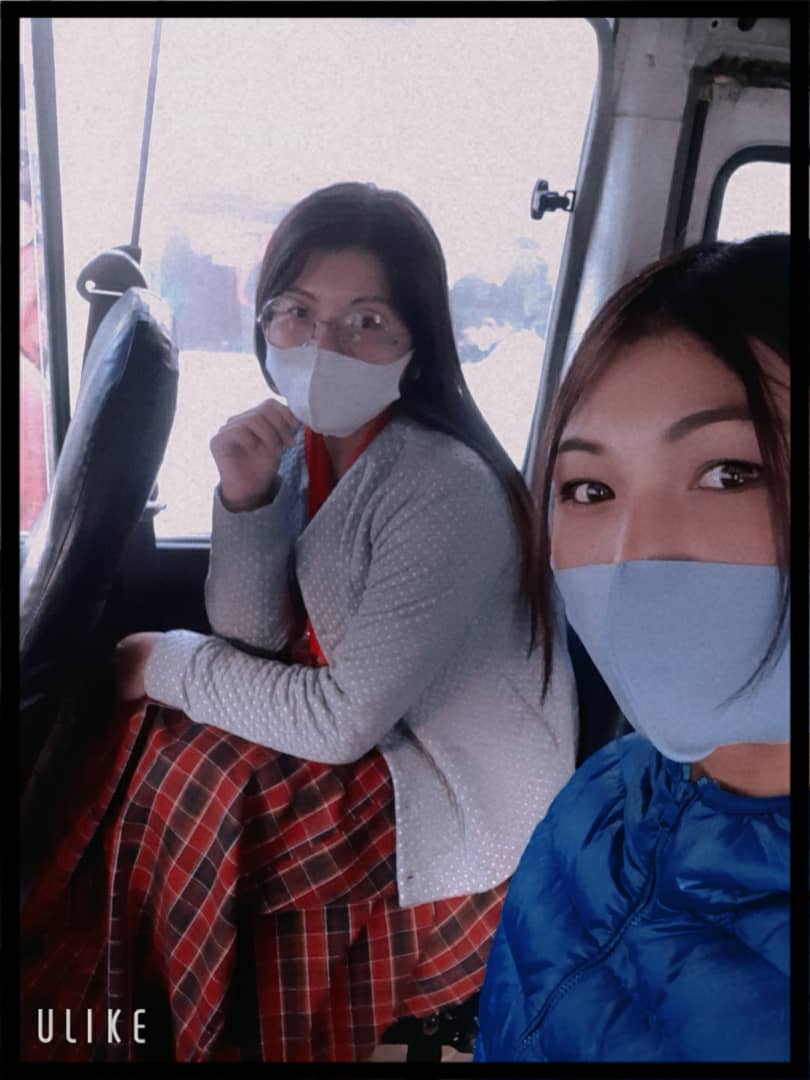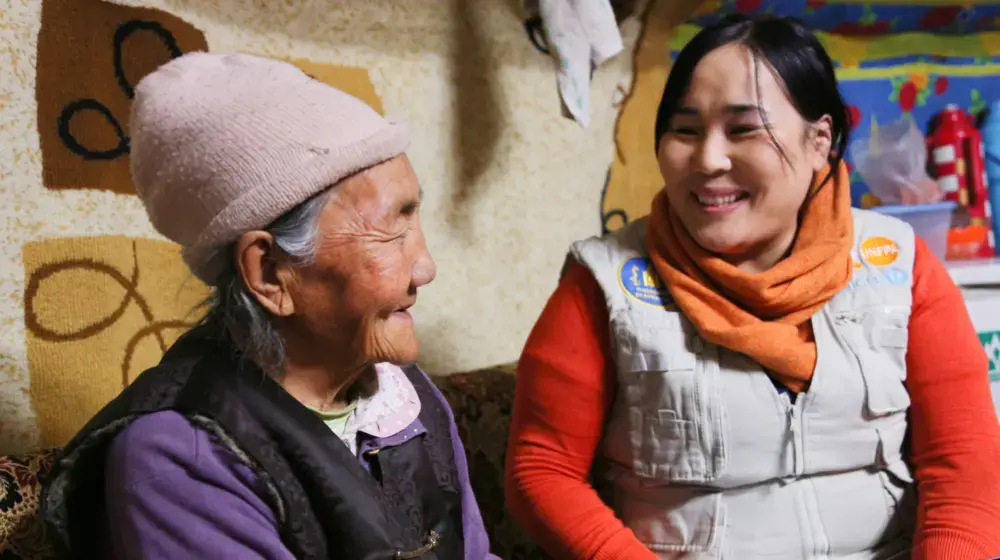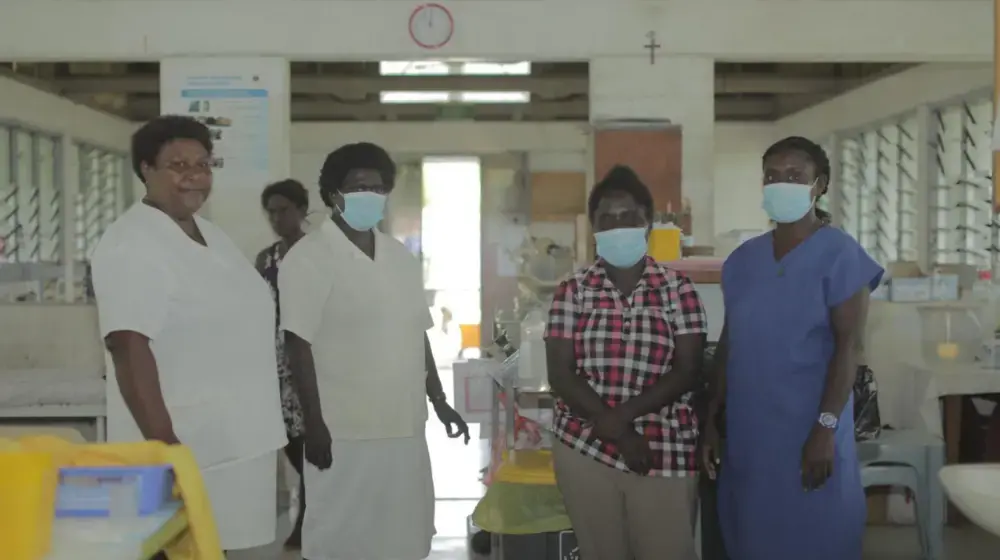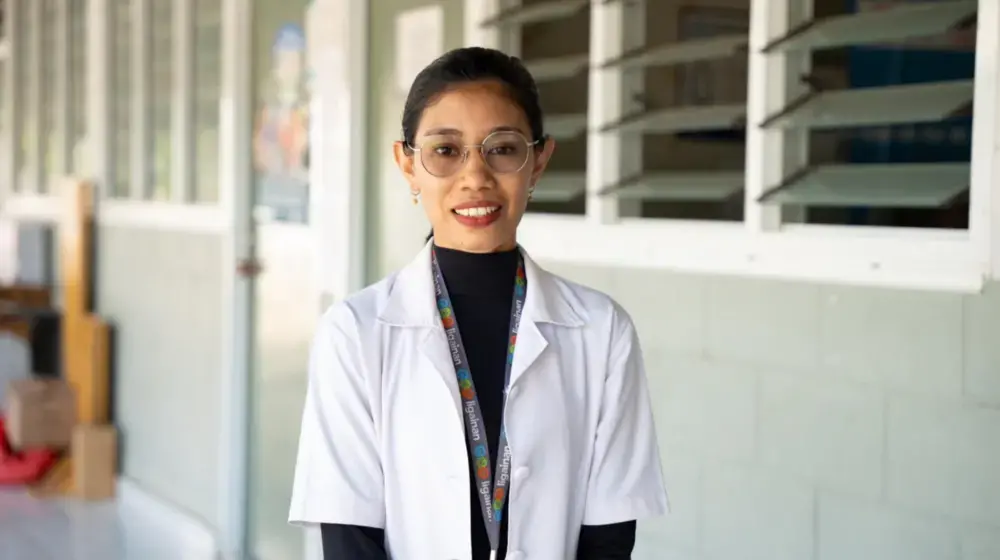THIMPHU, Bhutan - Life in Thimphu, the capital city of Bhutan, seems to be at a standstill with the COVID-19 nationwide lockdown in effect.
However, Kelsang Tshomo is anything but inactive. She is on an urgent mission. She has been regularly calling her colleagues and friends through the crisis to check on their well-being, and providing them with information on ways to seek help in case of domestic violence.
The eldest of four siblings, Kelsang dropped out of high school to take care of them and grew up with the traditional notion that a woman’s place was in the kitchen and while boys go out and play, girls must stay indoors to do household chores.
This unequal societal gender construct made her look at violence against girls and other forms of gender-based violence as a normal occurrence, not worth talking about. Today she is a transformed woman: an outspoken advocate and upholder of rights and choices for all.
Today, empowered with knowledge and information, she realizes that ending violence is imperative and a fundamental requirement for the attainment of an equal, just and flourishing society.
Bhutan’s Queen, Her Majesty The Gyaltsuen Jetsun Pema Wangchuck, voiced deep concern over the number of domestic violence and abuse cases reported during the first COVID-19 lockdown in August 2020. This motivated Kelsang to do her part to help ensure the safety and security of every woman and child in Bhutan. She would call colleagues and friends every two to three days to ensure that everyone was safe in their homes.
Appeal on Wheels
Kelsang’s inspiring story started in 2016 when she became a conductor with Thimphu City Bus Services and was assigned the role of a Peer Counsellor for her staff of 87. Her worldview shifted further after she participated in a session in August 2020 on preventing gender-based violence (GBV) organized by UNFPA Bhutan in collaboration with its partner RENEW (Respect, Educate, Nurture and Empower Women) a non-profit organization. This propelled her to be a change-maker in her community and country.
“The training made me realize that any form of abuse…verbal, emotional, sexual or physical is not acceptable”, she says.
Kelsang uses the platform of coordination meetings, held every three months, to discuss and educate colleagues about gender-based violence, ways to report cases of abuse and seek assistance, thus providing an avenue to staff when they need help.
“It was difficult to speak about issues related to GBV in the beginning, as it was considered a taboo. It took some time to convince colleagues that GBV and sexual violence affects both men and women and that participation by everyone is required to end it,” says Kelsang. Her consistent efforts and hard work are having results.
“Female colleagues, some of whom had lived subdued lives in fear of their husbands are now confident, open and engage in discussions during these meetings,” Kelsang says proudly.
City bus services are an affordable mode of travel and are widely used by all sections of society, particularly young people, girls and women, many of whom work in the entertainment industry and hubs known as Drayangs and in private business establishments.

Women bus conductors at work in Thimphu, August 2020. Image: Courtesy Kelsang Tshomo.
City bus drivers and conductors interact with a diverse group of people every day which make them ideal candidates to be change-makers in Bhutanese society, especially if they are educated and sensitized on harmful practices and its negative impact.
UNFPA Bhutan is partnering with Thimphu City Bus Services since 2020 to make bus services safe and free from any form of harassment. During the lockdown, public transport services, particularly taxis, were deployed to attend to emergencies. UNFPA has trained 47 Red Cross/Taxi Association members and 25 bus drivers and conductors to carry out advocacy on COVID-19 safety measures and GBV prevention in public transport services. City Bus Services will be expanding their fleet by an additional 20 buses.
Kelsang is confident that with continued training and sensitization programs, gender-based violence can be prevented.
-----
UNFPA, the UN’s sexual and reproductive health agency, works in over 150 countries, including Bhutan.
UNFPA seeks to achieve zero maternal deaths, zero unmet need for family planning and zero gender-based violence and harmful practices against women and girls.
For more on our response to the COVID-19 pandemic, visit https://www.unfpa.org/COVID19.
To support our lifesaving work amid the pandemic, visit https://donate.unfpa.org/th-en/covid-19.





